 |
 Home | Webstore Home | Webstore
|
|
Latest News:
OOTP 26 Available
- FHM 11 Available
- OOTP Go! Available
Out of the Park Baseball 26 Buy Now! |

|
|
||||
| ||||
|
|||||||
| OOTP Dynasty Reports Tell us about the OOTP dynasties you have built! |
 |
|
|
Thread Tools |
|
|
#1 |
|
Bat Boy
Join Date: Jun 2012
Posts: 7
|
The British National Baseball League (est. 1946)
BRITISH NATIONAL BASEBALL LEAGUE (BNBL)
1946 - Inaugural Season 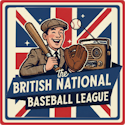 The year is 1946. The echoes of the Second World War still resonate deeply across the United Kingdom, a nation weary but resolute, beginning the arduous task of rebuilding not just its cities and infrastructure, but also its spirit. Amidst this backdrop of recovery and renewal, a new sporting endeavor is taking root, one that promises to capture the imagination of the British public: the British National Baseball League (BNBL). Officially commencing its inaugural season on April 2, 1946, the BNBL emerges to leverage a unique set of circumstances. While cricket and association football have long held sway over the national sporting consciousness, the significant presence of American servicemen and their cultural exports during the war years has sown the seeds of curiosity for baseball amongst the populace. Many Britons had their first glimpse of the game during impromptu matches played on airfields and in parks, fostering a nascent appreciation for its athleticism and strategic intricacies. Furthermore, the war brought an unexpected pause to the beloved English Football League. As professional football tentatively begins its return in the autumn of 1946, baseball stands poised to offer an exciting alternative throughout the summer months, capitalizing on a pent-up demand for organized, competitive sport. The fast-paced action, the strategic battles between pitcher and batter, and the communal atmosphere of the ballpark offer a compelling contrast to the traditional British sporting landscape. Beyond mere entertainment, the BNBL aims to embody the post-war spirit of unity and progress, providing a fresh avenue for national pride and local community engagement. The league's founders envision baseball not as a replacement for established sports, but as a complementary pastime that can weave itself into the fabric of British sporting culture, a truly national game for all. The inaugural 1946 season of the British National Baseball League proudly features twenty teams, each representing a distinct region and often drawing inspiration from the local industries, history, and character of their home. This robust league operates with a full 162-game schedule per team, ensuring ample opportunity for intense competition. The clubs are organised into two major geographical sub-leagues, the Northern League and the Southern League, each comprising ten formidable teams, without further internal divisions. A compelling feature of this new sporting landscape is the inclusion of interleague play, allowing clubs from the North to clash with their Southern counterparts throughout the season, promising exciting and varied matchups for the eager British public. At the culmination of this extensive season, the champions of the Northern and Southern Leagues will vie for the ultimate prize, the prestigious Windsor Cup, to be decided in a thrilling seven-game series. Herein lies the complete roster of teams for the BNBL's inaugural 1946 season: Northern League (10 Teams): Glesga Clydesmen (Glasgow, Scotland) Newcastle Pitmen (Newcastle upon Tyne, North East England) Liverpool Liver Birds (Liverpool, North West England) Cotton City Millers (Manchester, North West England) Ewood Electrics (Blackburn, North West England) Mancunian Dynamos (Manchester, North West England) Don Valley Blades (Sheffield, Yorkshire) Yorkshire Thorns (Leeds area, Yorkshire) Hull Trawlers (Hull, Yorkshire/Humberside) Northamptonshire Flyers (Northamptonshire, East Midlands) Southern League (10 Teams): Highbury Aces (North London) Kensington Royals (West London) Brixton Blues (South London) Stratford Steamers (East London) Thorpe Abbotts Bombers (East Anglia) Birmingham Automatics (Birmingham, West Midlands) Aston Hall Guardians (Aston/Birmingham, West Midlands) Dorset Rivieras (Dorset Coast, South West England) Plymouth Sounders (Plymouth, South West England) Cardiff Dragons (Cardiff, Wales) Each of these clubs boasts a unique identity, carefully crafted to reflect their local heritage, industries, and culture of the 1940s and 1950s. Much work has already gone into developing distinct team names, mascots, and uniform concepts. Early season game summaries have also begun to chronicle the unfolding drama and burgeoning excitement of this novel sporting endeavor, reported in a style befitting the era's esteemed newspapers. |
|
|

|
|
|
#2 |
|
Bat Boy
Join Date: Jun 2012
Posts: 7
|
The British National Baseball League - Inaugural 1946 Season Teams
The 1946 season marks a pivotal moment for British sport, as baseball, buoyed by its exposure during the war and the significant American military presence, steps onto the national stage. The league's 20 teams are strategically placed across Great Britain, reflecting major population centres, industrial powerhouses, and areas deeply impacted by the wartime alliance, aiming to establish baseball as a truly national pastime. 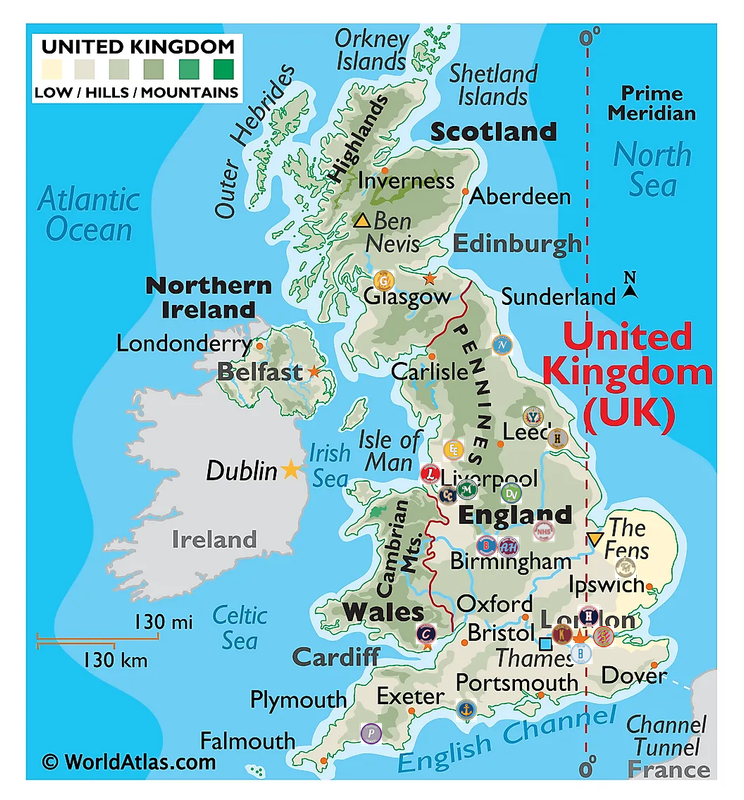
|
|
|

|
|
|
#3 |
|
Bat Boy
Join Date: Jun 2012
Posts: 7
|
The British National Baseball League - Inaugural 1946 Season Teams
The 1946 season marks a pivotal moment for British sport, as baseball, buoyed by its exposure during the war and the significant American military presence, steps onto the national stage. The league's 20 teams are strategically placed across Great Britain, reflecting major population centres, industrial powerhouses, and areas deeply impacted by the wartime alliance, aiming to establish baseball as a truly national pastime. Northern League (10 Teams): 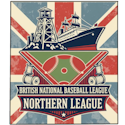 Glesga Clydesmen   Local & Socio-Economic State: Representing Glasgow, Scotland's largest city, a global hub for shipbuilding and heavy engineering. Post-WWII, Glasgow was still defined by its colossal shipyards on the River Clyde, a city with a proud and resilient working-class culture, contributing massively to the national recovery. Origin of Team Name: "Glesga" is the authentic Glaswegian pronunciation of the city's name, grounding the team in local dialect and identity. "Clydesmen" directly references the River Clyde and the formidable, skilled workers who built the world-renowned "Clydebuilt" ships, embodying strength and industrial pride. Newcastle Pitmen   Local & Socio-Economic State: Located in Newcastle upon Tyne, the heart of North East England. This region was synonymous with deep coal mining and heavy industry, forming the backbone of its working-class communities. Post-war, it continued its vital role in fueling the nation. Origin of Team Name: "Pitmen" is a highly authentic and powerful term for coal miners, reflecting the bedrock industry of Newcastle and the wider North East. It embodies toughness, camaraderie, and deep working-class roots. Liverpool Liver Birds   Local & Socio-Economic State: Based in Liverpool, a major port city in North West England. Heavily bombed during the war, Liverpool was undergoing significant rebuilding but remained a vital maritime and industrial centre with a distinct cultural identity. Origin of Team Name: Directly draws from the iconic mythical Liver Birds, symbols of the city perched atop the Liver Building. This name provides a unique and deeply local identity tied to Liverpool's maritime history and distinctive folklore. Cotton City Millers   Local & Socio-Economic State: Represents Manchester, the historic "Cottonopolis" of North West England. While transitioning, post-WWII Manchester was still a dominant force in textiles and diversified manufacturing, characterized by innovation and a strong working-class community. Origin of Team Name: "Cotton City" is Manchester's historic nickname, emphasizing its industrial heritage. "Millers" directly references the workers and factories of its textile industry, symbolizing hard work and output. Ewood Electrics   Local & Socio-Economic State: Hails from Blackburn, a prominent mill town in North West England. Blackburn was a significant centre for cotton production, and its mills were early adopters of electric power, symbolizing industrial energy and technological advancement. Origin of Team Name: "Ewood" is a subtle nod to Ewood Park, the home of Blackburn Rovers, connecting to established local sport. "Electrics" references the city's early adoption of electric power in its textile mills, signifying energy, innovation, and a modern industrial edge. |
|
|

|
|
|
#4 |
|
Bat Boy
Join Date: Jun 2012
Posts: 7
|
Mancunian Dynamos
  Local & Socio-Economic State: Also representing Manchester, North West England, allowing for a healthy city rivalry. Manchester's reputation extended to groundbreaking engineering and innovation, even in the nascent field of computing. Origin of Team Name: "Mancunian" is the demonym for Manchester residents, firmly rooting the team in local identity. "Dynamos" evokes the city's industrial power, engineering prowess, and a sense of vibrant energy and force, suitable for a city at the forefront of industrial innovation. Don Valley Blades   Local & Socio-Economic State: Represents Sheffield, a major industrial city in Yorkshire, famously known as the "Steel City." Post-WWII, Sheffield's steel, cutlery, and tool-making industries remained vital, contributing to the nation's reconstruction. Origin of Team Name: "Don Valley" identifies the industrial heartland of Sheffield, where steel production thrived. "Blades" represents the city's world-famous cutlery and steel industry, implying sharpness, precision, and a tough, unyielding spirit. Yorkshire Thorns   Local & Socio-Economic State: Based in the Leeds area of Yorkshire, a bustling commercial and industrial hub known for textiles (especially wool), ready-made clothing, and engineering. Leeds embodied a resilient and proud working-class culture. Origin of Team Name: "Yorkshire" provides broad regional identity. "Thorns" is a direct reference to the iconic White Rose of Yorkshire, which prominently features thorns, symbolizing the county's strong, resilient, and sometimes formidable character. Hull Trawlers   Local & Socio-Economic State: Located in Hull (Kingston upon Hull) on the Yorkshire/Humberside coast. This major port city was globally renowned for its deep-sea fishing (trawling) and shipping industries, enduring heavy bombing during the war but remaining crucial for food supply. Origin of Team Name: "Trawlers" directly references Hull's defining industry of deep-sea fishing, symbolizing hard work, endurance, and the city's crucial role in providing food for the nation. It reflects the rugged maritime spirit of its inhabitants. Northamptonshire Flyers   Local & Socio-Economic State: Represents Northamptonshire in the East Midlands. This county hosted numerous USAAF (US Army Air Forces) bases during WWII, leading to significant American military presence and cultural exchange, making it a key "Little America" area. Origin of Team Name: "Flyers" directly refers to the aviators from the numerous USAAF bases in the county who "dominated the skies." It captures the essence of the region's wartime American military influence and aerial energy. |
|
|

|
|
|
#5 |
|
Bat Boy
Join Date: Jun 2012
Posts: 7
|
Southern League (10 Teams):
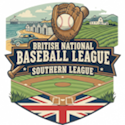 Highbury Aces   Local & Socio-Economic State: Based in North London, associated with Arsenal Football Club. Post-WWII London was a city of immense rebuilding, but also a vibrant cultural and sporting capital. Origin of Team Name: "Highbury" is Arsenal's historic stadium, grounding the team in its established sporting locale. "Aces" implies top-tier performance and skill, fitting for a club of Arsenal's stature and hinting at the skilled American airmen who brought baseball. Kensington Royals   Local & Socio-Economic State: Represents West London, an area synonymous with affluence, elegant residential districts, and royal connections (Kensington Palace). Post-war, it remained a prestigious cultural hub. Origin of Team Name: "Kensington" identifies the affluent borough. "Royals" directly connects to Kensington Palace and the monarchy, evoking prestige, tradition, and a distinguished identity. Brixton Blues   Local & Socio-Economic State: Located in South London (Brixton), a vibrant and increasingly diverse cultural hub. The late 1940s saw the beginning of significant Caribbean immigration, with Brixton becoming a centre for a rich musical heritage, particularly blues and jazz, amidst a resilient working-class community. Origin of Team Name: "Brixton" grounds the team geographically. "Blues" connects to the area's burgeoning musical heritage, particularly the blues music scene that was taking root, and conveys a classic, soulful baseball feel. Stratford Steamers   Local & Socio-Economic State: Situated in East London (Stratford), a historic railway hub and industrial centre with vast locomotive works. Post-WWII, Stratford was a key area for rebuilding and continued its role in heavy industry and transport. Origin of Team Name: "Stratford" identifies the specific railway town. "Steamers" directly references the powerful steam engines and locomotives that were built and serviced there, symbolizing industrial might, power, and speed. Thorpe Abbotts Bombers   Local & Socio-Economic State: Based in East Anglia, specifically near a significant USAAF bomber base. This area became known as "Little America" due to the overwhelming presence of American airmen and their cultural influence, including baseball. Origin of Team Name: "Thorpe Abbotts" is the name of a specific, prominent USAAF bomber base in the region. "Bombers" directly refers to the formidable aircraft (e.g., B-17s, B-24s) that operated from there, embodying strength and wartime impact. |
|
|

|
|
|
#6 |
|
Bat Boy
Join Date: Jun 2012
Posts: 7
|
Birmingham Automatics
  Local & Socio-Economic State: Represents Birmingham, the "Workshop of the World" in the West Midlands. This city was a powerhouse of manufacturing, particularly known for its diverse engineering, metalworking, and, increasingly, automotive industries. It faced significant wartime damage but displayed immense resilience in rebuilding. Origin of Team Name: "Birmingham" identifies the city. "Automatics" reflects the city's pivotal role in the automotive and advanced manufacturing industries, implying precision, efficiency, and a well-oiled team that operates with mechanical excellence. Aston Hall Guardians   Local & Socio-Economic State: Located in the Aston area of Birmingham, a predominantly working-class industrial district with strong community ties, closely associated with local factories and the football club. This area, like much of Birmingham, was focused on post-war reconstruction. Origin of Team Name: "Aston Hall" is a prominent historic Jacobean mansion in Aston. "Guardians" connects to the idea of protecting local heritage and community spirit, providing a regal yet community-focused identity for the team. Dorset Rivieras  Local & Socio-Economic State: Represents the picturesque Dorset Coast in South West England. While known for its natural beauty and seaside charm, this area also served as a crucial D-Day staging and embarkation point, witnessing immense wartime activity and American presence. Origin of Team Name: "Dorset" identifies the county. "Rivieras" evokes the scenic beauty and coastal charm. The underlying strategic wartime importance adds depth, suggesting a beautiful fašade over a core of wartime grit. Plymouth Sounders   Local & Socio-Economic State: Based in Plymouth, South West England, a city inextricably linked to the Royal Navy and its proud maritime history. Heavily bombed during the Blitz, Plymouth displayed immense resilience in its post-war rebuilding efforts. Origin of Team Name: "Plymouth Sound" is the city's defining natural harbor. "Sounders" implies a deep connection to the sea, naval heritage, and the resonating power of its community. Cardiff Dragons   Local & Socio-Economic State: Represents Cardiff, the capital of Wales, a bustling port city globally renowned for its coal exports and steel industry. Cardiff, and the South Wales Valleys it served, was a hub of intense working-class culture and resilience, crucial to Britain's industrial economy. Origin of Team Name: "Cardiff" identifies the capital city. "Dragons" utilizes the powerful and instantly recognizable Welsh Dragon, the national symbol of Wales, making it a proud and unifying representation for the capital and the entire nation. |
|
|

|
|
|
#7 |
|
Bat Boy
Join Date: Jun 2012
Posts: 7
|
Before moving forward, a few housekeeping and league structure notes.
- As stated the league is 162 games, there is interleague play on a 5 year rotating basis. The league runs from Apr 2 - Oct 3. - There is only a 7 game Championship round in the playoffs. - Based on the history as posted in the initial post, Baseball took root due to the influx of American soldiers and the intra-base games played between installations and industries. This, the popularity of English Football, plus the toll of WWII, the league is almost entirely made up of youngsters (16-22), with some mid-20s players who either didn't want to go the football/cricket route or decided to take it up in Primary or Secondary school. - There will not be a yearly amateur draft, but an injection of amateur free-agents. This will be done in a graduated methodology to slowly build the Free Agent pool. I may eventually add U18, U21, and Reserve Teams. Not a true Minor League system, but a system that somewhat mirrors the way English football matured over time. - My intent is to highlight a game or two of the week and provide weekly recaps or roundups. This presentation is a work in progress and I am sure will change or mature over time. Advice, Comments, or Questions are more than welcome as the writing et al is a learning project for me. - Lastly (for now), my plan is to get through a couple of league days per day and post 3+ times a week... we'll see how that goes and adjust over time. Now to 1946 - ********** Here are the post Pre-Season Predictions for the 1946 BNBL 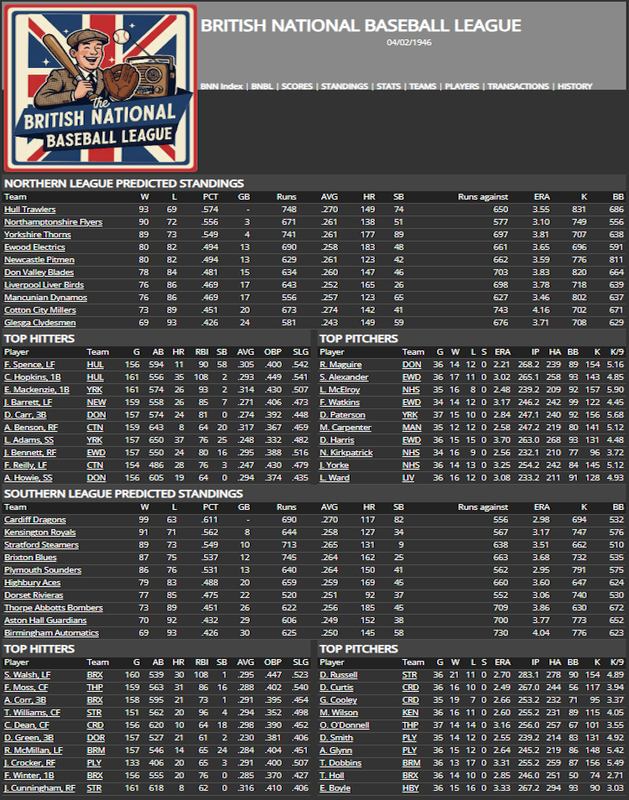
|
|
|

|
|
|
#8 |
|
Minors (Rookie Ball)
Join Date: Mar 2007
Posts: 31
|
Hope to see this begin, love the background to it and it’s a shame we didn’t actually pick up the sport over here
|
|
|

|
 |
| Bookmarks |
|
|